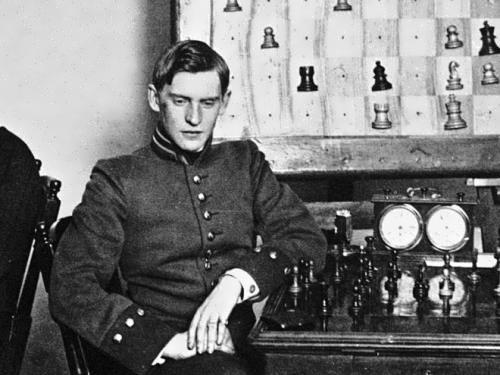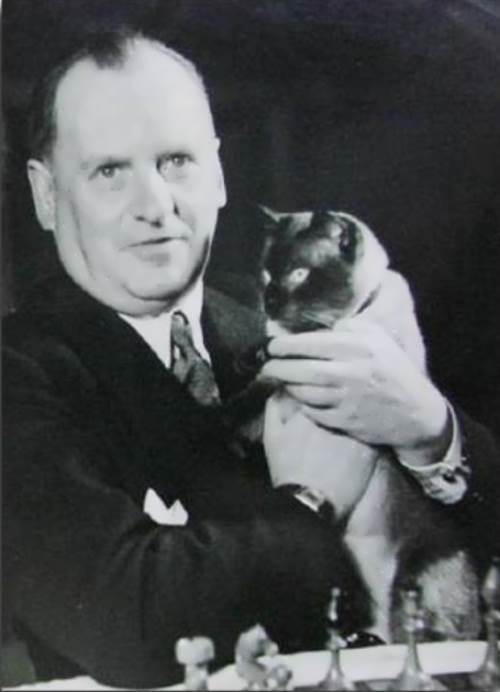Alexander Alekhine – undefeated World Chess Champion
Death sentence in Odessa, chess matches with the Nazis, the mysterious death.
Let’s remember Alexander Alekhine – multiple winner of various international tournaments, fourth World Chess Champion, the only world champion who died undefeated.
The unique chess player managed to play for France and during the Second World War he managed to compete with the Nazis in informal competitions in the occupied territories.
Man of the world – so you can say about many of today’s athletes. They constantly have to travel, they live in countries where they feel more comfortable and they can choose any place on the planet for training.
However, in the Soviet Union it was extremely difficult to move abroad.
Alexander Alekhine was born on October 19, 1892 in Moscow, the Russian Empire.
Future world champion started playing chess at the age of seven, and three years later he was able to get a draw with the legendary Harry Pillsbury. In 1902, in one of the Moscow chess clubs Pillsbury challenged 22 opponents. 10-year-old Alekhine was the only player who didn’t lose the game. The little boy forced overseas Wizard settle for a draw.
The First World War began when Alekhine took part in a tournament in Germany. He was awarded the grand prize and… was arrested as a citizen of an enemy state. Soon the chess player managed to leave Germany, but in 1919 he was at the center of another terror – in Odessa. You know, he was sentenced to death for communication with the Whites. Only the personal intervention of the chairman of People’s Commissars of the Ukraine Christian Rakovsky saved Alekhine from death.
Chess player was able to forget all the troubles and focus on his favorite game. In 1927, in the Argentine capital city, Alekhine became world chess champion. His opponent was world champion Cuban Jose Raul Capablanca. It was one of the longest matches in the history of chess. They had played 34 games. Alekhine represented France and became its first and so far the last world chess champion.
Tournament in San Remo (Italy) in 1930 became one of Alekhine’s highest triumphs. The strongest players in the world took part in it. Alekhine won thirteen matches and only two ended in a draw.
From December 1932 to May 1933 Alekhine visited the United States, Mexico, Hawaii, Japan, Shanghai, Hong Kong, Philippines, Singapore, Indonesia, New Zealand, Ceylon, Alexandria, Jerusalem, Genoa.
In 1941, the chess player was in Portugal. As he stated, permission to leave the country he managed to get after a series of anti-Semitic articles. In his version, the Germans forced him to write articles against Jewish players, and then added anti-Semitic statements. But the truth is unknown.
Since 1941, he participated in a series of tournaments in the occupied territories. In September 1942, Alekhine even won the European Championship, which was actually a Nazi propaganda. Alekhine had won the most competitions of the Third Reich. Those victories cost him his career.
After World War II, Alekhine lived in Portugal, being isolated from the modern chess community. In 1945, the American chess masters were against his participation in tournaments in the UK.
A month before his death, famous Grandmaster Mikhail Botvinnik invited Alekhine to take part in a match in London. Alexander needed Chess Federation permission. On March 23, 1946 FIDE Executive Committee decided to hold the match Alekhine – Botvinnik, but Alexander didn’t learn about it. On March 24 he was found dead in his hotel room.
Alexander Alekhine will forever remain not only one of the greatest chess players, but also a unique personality. All his life was one big mystery and challenge to society.
Personal life
Biographers note that all his women were older than Alekhine.
His first wife, Alexandra Batayeva was a widow and worked as a clerk. They got married in 1920.
A year later, the couple divorced, and Alekhine married Anne-Lise Rygge from Switzerland. After a while, Alekhine along with his wife went to Europe. Their marriage actually broke up, because his wife was an active public figure and could not accompany her husband at tournaments. Anne gave birth to a son named Alexander (1921-2009), who lived in Switzerland with his mother until her death in 1934.
Alekhine and Nadezhda Vasilieva lived together for ten years.
Grace Withaar, widow of a British tea planter, became Alekhine’s last wife. She had U.S. citizenship, was 16 years older than her husband, and was a good chess player.
Alekhine was a cat lover. Siamese Chess was the only faithful companion in Alekhine’s life. Their union was stronger and longer than any of the liaisons. The cat was his partner, friend and talisman. After the death of Chess Alekhine was depressed for a long time and even refused to participate in major tournaments.
Source: www.championat.com



